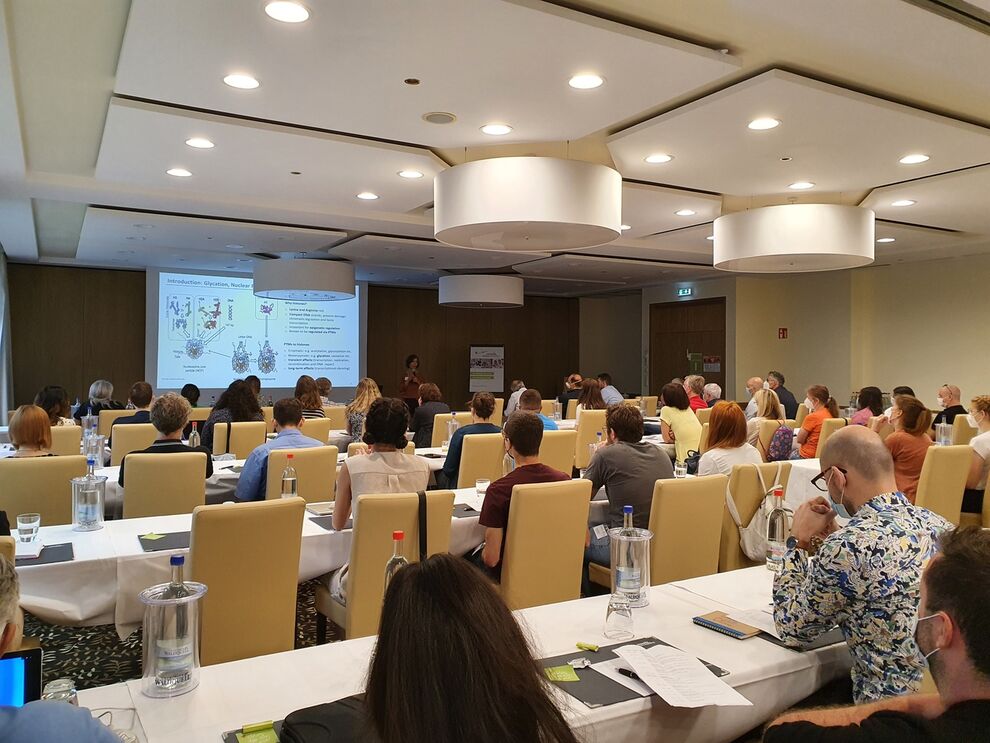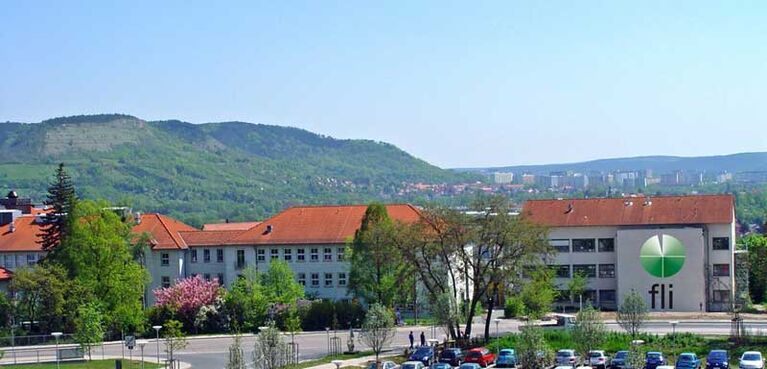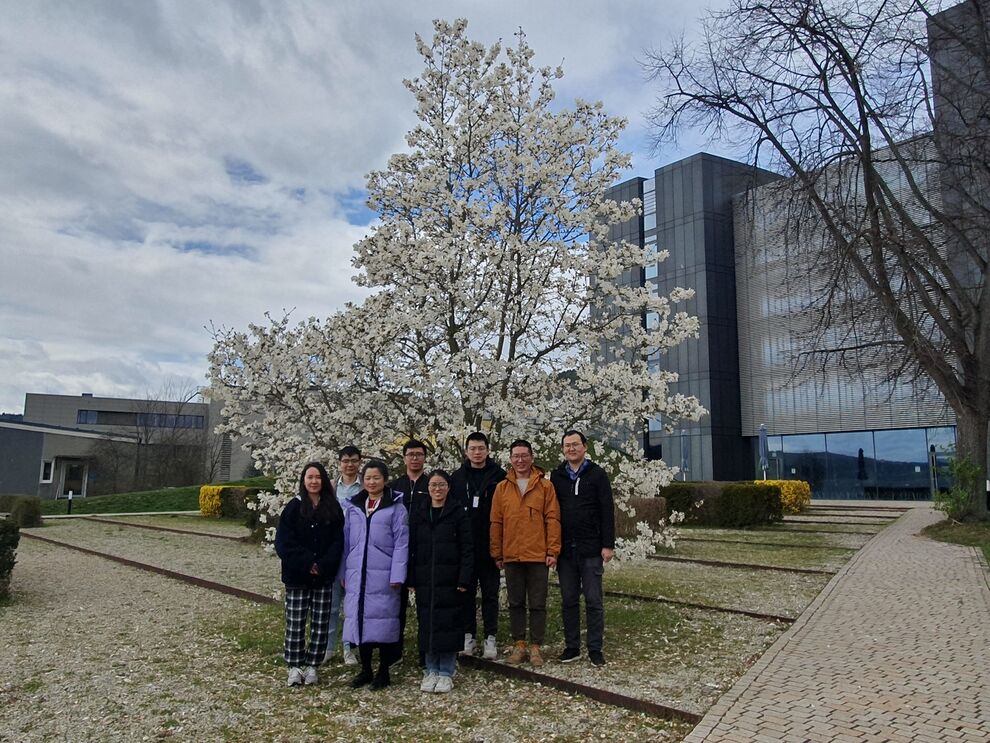The Interdisciplinary Center of Clinical Research (IZKF) of the Jena University Hospital promotes clinical and basic research thereby strengthening the major research topics of the medical faculty and allowing the development of new research areas. The graduate programme Experimental Medicine is part of the IZKF promotion programme for young scientists. It is open to doctoral students of life sciences and medicine coming from different research groups of the Medical Faculty and the Faculty for Biological Sciences and provides a diversified curriculum. The qualification programme familiarises students with up-to-date topics of molecular and experimental medicine and modern laboratory techniques. It includes a lecture series, which is dealing with the pathogenesis of immunological, inflammatory, oncological and neurological diseases, method courses on advanced molecular biology and cell biology techniques, imaging techniques, electrophysiological methods, functional and morphological analysis as well as animal studies. An intensive scientific exchange with experts from the respective research fields including placements in host labs is also part of the programme. The aim of this graduate programme is to develop doctoral students into competent young scientists who will prospectively address topics of experimental medicine in clinical and basic research studies in a collaborative and successful manner.
Programmes
The aim of the graduate programmes coordinated by the JSMM is to familiarise students with up to date research topics of molecular medicine and modern laboratory techniques. The JSMM provides a scientific programme of lectures, seminars and methods courses, which will deepen the understanding of general aspects of molecular medicine as well as the knowledge of specific research areas. Language and soft skill courses including the training of communication, presentation and public speaking as well as the introduction of topics such as project funding, bioethics and statistics will be provided in close collaboration with the JGA. General rules for students include the supervision by a thesis committee with annual meetings and an annual report in addition to participating in the qualification programme. Of note, most of the programmes are scheduled for both, PhD and MD students, while JSAM is specifically outlined for medical doctoral students as a part of a subsequent career plan. In addition to general topics the six graduate programmes offer specific sets of courses, which are, however, open to all students of the JSMM. The programmes and curricula of the graduate schools are detailed on the respective home pages (IZKF, RTG 2155, LGSA and JSAM).
IZKF
Current projects: Nachwuchsförderprogramme (uniklinikum-jena.de)
RTG 2155 - ProMoAge

The RTG 2155 is a DFG-funded graduate programme which is focusing on posttranslational modifications (PTM) of cellular proteins as key players in age progression. PTMs such as acetylation, glycosylation, glycation or oxidation regulate protein activities, thereby controlling shape and function of cells. Due to alterations of modifying enzymes or an altered cellular environment in aged organisms, PTM patterns may change and, as a consequence, dysregulation of cellular processes may occur. A better understanding of how PTMs contribute to the impairment of organ function with increasing age will help to devise therapies aimed at improving the health state of the elderly.
Within the RTG 2155, scientists from the universities of Halle and Jena as well as from the FLI Jena combine their expertise from various fields of chemistry, biochemistry, molecular biology, cell biology, biomedicine and “omics”-based technologies to characterise PTM-mediated mechanisms of functional decline during ageing. The scientific programme constitutes an excellent background to qualify young scientists for a future career in interdisciplinary ageing research from basic chemistry to medicine. In addition, an innovative qualification programme including state-of-the-art methodological platforms and high-quality training in theoretical and practical aspects of ageing research with a focus on PTMs is provided. The RTG 2155 ProMoAge represents a structured training programme for ageing research and is aimed at accelerating scientific progress and opening new translational approaches in this field.

Current Projects: Doctoral Candidates (uniklinikum-jena.de)
JSAM
The Jena School for Ageing Medicine (JSAM) of the Jena university hospital is funded by the Else Kröner Foundation. It provides research projects and an educational programme to qualify medical students for a career as clinician scientist in ageing research. Ageing leads to impairment of tissue homeostasis and functional decline of organs and represents a main risk factor for prevalent diseases such as cardiovascular disease and neurodegeneration. The aim of research projects in JSAM is to define targets for therapeutical interventions that counteract age-related impairment of tissue and organ function.
Medical students are enrolled over a period of three years. They are involved into the development of a research proposal, perform experimental work, which is scheduled for one year, and thereafter participate in a supervision programme to promote publishing and public presentation of the results. All doctoral students will be offered a position for a specialist medical training in the university hospital and will have the option to join a clinician scientist programme. In addition to experimental work, JSAM provides a set of courses on different topics of ageing research, enables participation in conferences, and internships in host laboratories.
Current projects: Stipendiatinnen & Stipendiaten (uniklinikum-jena.de)
LGSA

The Leibniz Graduate School on Aging and Age-Related Diseases (LGSA) of the Leibniz Institute on Aging /Fritz Lipmann Institute (FLI) is a joint activity of the Leibniz Institute for Age Research (FLI) and the Friedrich Schiller University (FSU) in Jena. Training and research within the PhD programme is interdisciplinary with the endeavour to understand the multifaceted mechanisms that cause the development of age-related diseases and those that cause senescence and ageing. Ageing is a complex stochastic process based on genetic contributions as well as environmental influences. The process is still ill-understood. The LGSA is strengthening research on the mechanisms of decisive processes, in particular pathological processes which lead to consequences for health and healthy ageing.
The research topics focus on two sections. The cellular and organismic senescence covers genome stability, identification of genes involved in ageing and gene regulation as well as research on longevity. In the other section, the mechanisms leading to specific age-associated diseases such as Alzheimer's disease, kidney failure, osteoporosis, immunosenescence and cancer are under investigation.
The experimental methodology ranges from genomic approaches, protein biochemistry, structure analysis and cell culture to animal models of disease. The up-to-date research facilities of the FLI are located at the Beutenberg Campus in close vicinity to different institutes of the FSU and non-University institutions, which have their main focus on basic and applied biomedical research.
Current Projects: Doctoral Candidates (leibniz-fli.de)
PhD Program in Biomedical Sciences Shenzhen-Jena

In September of 2016 Shenzhen University (SZU) and Friedrich Schiller University (FSU) signed an agreement to start a Joint PhD Program in Biomedical Sciences, which aims at training internationally competent biomedical researchers through the excellence of research from both universities. This joint PhD program is built upon the series of Jena/Shenzhen International Meetings on Adaptive Stress Response and the international efforts of the DFG-funded research training group RTG 1715. Prof. Dr. Xingzhi Xu and Prof. Dr. Thorsten Heinzel serve as the co-directors of the joint program. The program enrolled the first PhD candidates in 2017 and by 2022, about 30 candidates have been enrolled. PhD Candidates are jointly supervised by PIs from SZU and FSU (either Medical Faculty or Faculty of Biological Sciences) and spent two years each in labs in Shenzhen and Jena before the PhD degree (Dr. rer. nat.) is ultimately awarded by FSU. All PhD candidates of the Joint Program are registered with the Graduate Academy of FSU and participate in JSMM activities.

